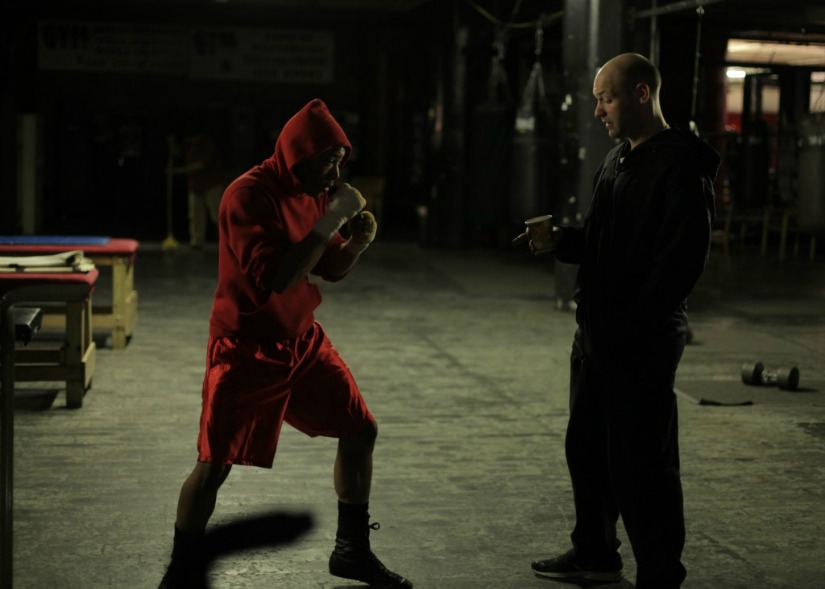I’m a sucker for boxing films. Ever since Rocky Balboa’s glory days, just mentioning boxing in a film has me sold from day one. But not every boxing film is made equal. When a boxing film tries to break down the mentality of the boxer therein, there’s an increased potential to fall apart completely. There’s a fine balance between introspection and action that lesser films don’t always know how to handle.
Unfortunately, Glass Chin is one of those lesser films.
[youtube id=”T6czkjsMbfY”]
Glass Chin
Director: Noah Buschel
Rating: NR
Release Date: June 26, 2015
In Glass Chin, former boxing champ Bud Gordon (Corey Stoll) has been struggling ever since he lost a huge title fight. As he begins training a young up and comer, he also takes a job as hired muscle for shady businessman J.J (Billy Cruddup). When he’s framed for murder, Bud must decide whether or not to abandon his former glory or go down like the champ he always knew he was. With an underdog boxing film like this, which really isn’t at all about boxing, there’s a nice sense of nostalgia for the boxing films of old. There are plenty of Rocky parallels I could pick out, but it’d be unfair to compare the two. I do have to point out, however, is that both films play with the idea that each person has a “prime” to a wonderful extent. As lackadaisical as the character work is, Corey Stoll really works wonders with the inner torment of a slowly aging man.
Sadly, Corey Stoll is the only one of note in the entire film. The script is overwrought with big, direct speeches. It was admittedly an interesting take the first time Cruddup gave a speech directly to the camera, but after the third time it lost its charm. The same goes for the rest of the film’s camera tricks. There are definitely some unique contrasts with wide angled shots, prolonged pauses on sets, and each of these tricks help the film stand out more than any of the actual content ever could. It’s just a shame these ideas aren’t supported by healthier content. A meandering pace not only slows the film down, but makes these takes harder to swallow. They stand out more for being slightly annoying than potentially anchoring the film’s thematic broad strokes. The house isn’t built well enough to enjoy the paint job.
As much as Glass Chin falters, I can’t punish it for trying. It’s a fresh attempt at breaking down the boxing genre that never quite makes it deeper than surface level analysis. Full of post modern philosophical rants that really only serve to bring the film further down, there was indeed some kind of message aching to get out.
But at the end of the day, the overall execution was so off the mark, Glass Chin gets KO’ed in the third round.

